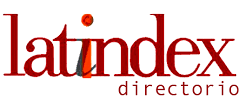La cátedra de educación patrimonial del Centro Universitario Julio Antonio Mella de Trinidad para promover el desarrollo local sostenible
Abstract
El presente trabajo está dirigido a presentar las experiencias de la Cátedra Honorífica Educación Patrimonial en el CUM de Trinidad para promover el desarrollo local sostenible, como parte del trabajo de la extensión universitaria y su importancia en la formación del estudiante de pregrado de las carreras pedagógicas de los años 4. y 5. Se recogen aquí las experiencias del proyecto extensionista que se aplica en este centro con el nombre " La Conservación de la Villa la Santísima Trinidad desde la Extensión Universitaria", En esta cátedra los profesores en formación constituyen los principales ejecutores a partir de la concepción de la escuela como centro cultural más importante de la comunidad para lograr un desarrollo local sostenible y donde la cátedra de Educacional Patrimonial logre un mejoramiento de la relación escuela, familia y comunidad a través del conocimiento , desarrollo , cuidado y conservación del patrimonio sostenible de esta ciudad. Fue premisa para el mismo incluir en el diagnóstico inicial de los profesores en formación el conocimiento sobre el patrimonio natural y cultural de la ciudad, el comportamiento ciudadano atendiendo a la identidad social, la responsabilidad, la participación ciudadana, la convivencia, así como otras necesidades que integran la preparación político ideológico para elaborar el programa.
Palabras clave: Extensión universitaria. Patrimonio Educación Patrimonial
The class of patrimonial education of the University Center Julio Antonio Jag from Trinidad to promote the sustainable local development
Abstract
The present work is directed to present the experiences of the Class Honorary Patrimonial Education in the CUM of Trinidad to promote the sustainable local development, like part of the work of the university extension and its importance in the formation of the student of pregrado of the pedagogic careers of the years 4. and 5. they are picked up the experiences of the project extensionista that it is applied in this center with the name The Conservation of the Villa the Sacred Trinidad from the University Extension here", In this class the professors in formation the main executioners constitute starting from the conception of the school like more important cultural center of the community to achieve a sustainable local development and where the class of Educational Patrimonial it achieves an improvement of the relationship school, family and community through the knowledge, development, care and conservation of the sustainable patrimony of this city. It was premise for the same one to include in the initial diagnosis of the professors in formation the knowledge on the natural and cultural patrimony of the city, the civic behavior assisting to the social identity, the responsibility, the civic participation, the coexistence, as well as other necessities that integrate the preparation ideological politician to elaborate the program.
Keywords: University extension. Patrimony Patrimonial Education
Recibido octubre 2017 Aprobado noviembre 2017





